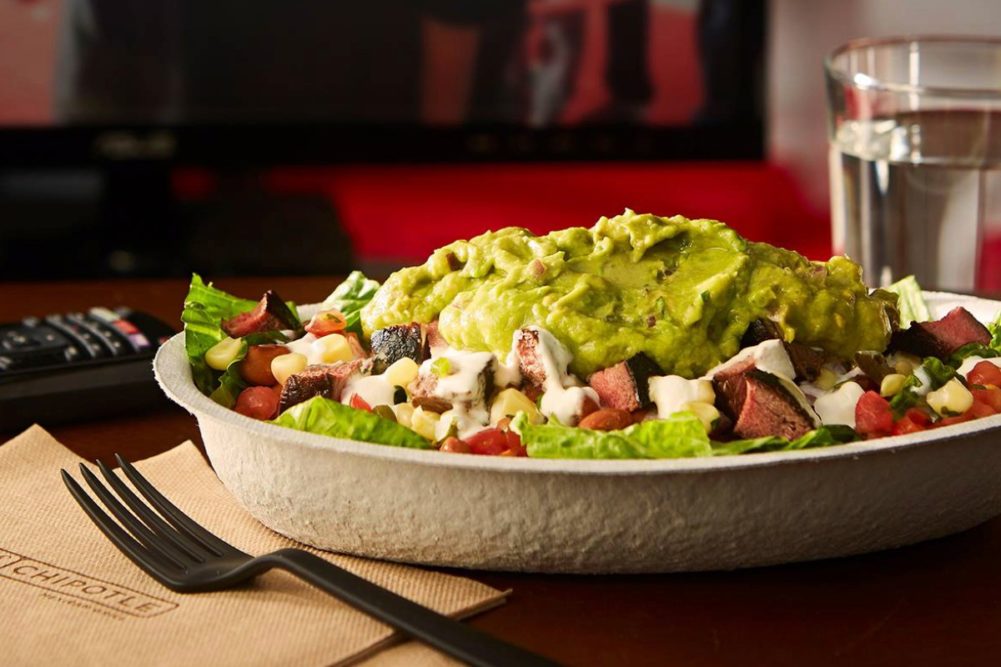NEWPORT BEACH, CALIF. — With many of its restaurants temporarily closed and most limited to takeout and delivery, Chipotle Mexican Grill Inc. sales plunged in March after surging in January and February, prior to the spread of COVID-19 in the United States, said Brian R. Niccol, chairman and chief executive officer.
“We began March on a very positive note, but as COVID-19 restrictions became more prevalent, our comps deteriorated and ended up declining 16% for the month, with the week ending March 29 being the trough at down 35%,” Niccol said during an April 21 earnings call.
Comparable sales for the quarter grew 3.3%, driven by menu price increases implemented last year that helped offset a decrease in total restaurant transactions. Sales in January were up 12%, while February sales increased 17%, benefiting from an extra day in the current year.
Chipotle net income for the first quarter ended March 31 declined to $76,388,000, equal to $2.75 per share on the common stock, from $88,132,000, or $3.18 per share, in the prior-year period. The company incurred expenses related to restaurant asset impairment, corporate restructuring and certain other costs that negatively impacted earnings in the current quarter.
Revenue increased 7.8% to $1,410,772,000 from $1,308,217,000.
“The majority of our restaurants are open for to-go orders, which is allowing us to successfully leverage the digital platform we put in place over the past two years,” Niccol said. “Q1 digital sales grew 81% year-over-year to $372 million — our highest ever quarterly level — and represented 26.3% of sales. As people started to implement social distancing, we moved swiftly by driving further investments toward digital and delivery designed to reduce friction while increasing convenient access.”
Prior to the pandemic, the chain had an even split between lunch and dinner business, Niccol said. In recent weeks, management has tracked an uptick in dinner sales and a decline in the lunch daypart.
“The positive is the digital experience, I think, has introduced people to a new behavior and a new occasion for Chipotle, which is solving that occasion for a family meal or dinner that historically maybe they already had Chipotle for lunch and they haven't considered us for that,” he said.
Since the beginning of April, sales have improved, presumably as consumers receive stimulus payments and have tired of home cooking, Niccol said.
“I think people were like, ‘You know what? I've got the additional cash, I've worked through my pantry loading, and I think it's time to break the routine of me cooking and being a little stir crazy, and let's reach out for restaurants to solve the solution,’” he said.
Circumstances have delayed menu innovation and market tests, but Niccol said Chipotle may experiment with brisket and cauliflower rice in the future.
“Consumer sentiment hasn't changed on the desire for those things,” he said. “We just have to make sure we do it at the right time because we want to come back operationally strong with the core business before we start adding some of those things.”
The company also announced it has signed a Deferred Prosecution Agreement to resolve a food safety investigation conducted by the US Attorney’s Office for the Central District of California and the US Food and Drug Administration’s Office of Criminal Investigations related to incidents beginning in 2015. Under terms of the agreement, the government will take no actions relating to these past incidents for three years provided Chipotle pays a $25 million fine and enhances and maintains its existing comprehensive compliance program.
Shares of Chipotle Mexican Grill on the New York Stock Exchange were trading as much as 29% higher on April 22 from the previous close of $12.44.


